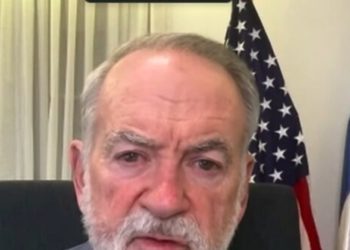Massive floods wreak havoc in eastern Australia
Incessant rain over the past three days has unleashed massive floods in eastern , inundating streets, cutting off entire towns...
German firm shipped restricted tech to Russia — after EU sanctions kicked in
LONDON — A German-based technology company was able to export restricted tech to Russia even after the European Union imposed...
Trump deploys 1,115 additional troops to US-Mexico border, bringing total to nearly 10K service members
The Trump administration approved an additional 1,115 service members for deployment to the southern border Thursday as part of President...
Scouted: Lululemon’s New Shapewear-Like Glow Up Tight Might Be the Brand’s Best Drop Since the Align Pant
Scouted selects products independently. If you purchase something from our posts, we may earn a small commission.Lululemon struck gold when...
Guess who India, Pakistan and Iran are all wooing? The Taliban
For a country whose government is not recognised by any nation, Afghanistan’s acting Foreign Minister Amir Khan Muttaqi has had...
‘Frasier’ star Kelsey Grammer voices growing alarm over AI manipulation
Join Fox News for access to this content Plus special access to select articles and other premium content with your...
DOGE targets Census Bureau, worrying data users about health of US data infrastructure
The group run by Elon Musk and his aides to cut federal spending in the second Trump administration is targeting...
Feted by school children, tossing out a first pitch: Former Israeli hostage grapples with celebrity
BOSTON (AP) — Three months after his release from Hamas captivity, Omer Shem Tov stood on the pitcher’s mound at...
‘When They Scream Things like ‘Queers for Palestine,’ It’s Obvious that They’re Idiots’: Huckabee Blames Ignorance for Spike in Antisemitism
Thursday on Newsmax TV’s “American Agenda,” U.S. ambassador to Israel Mike Huckabee voiced his frustration over the increase in hatred...
Official Images of the WORKSOUT x Nike Air Max 95 “Uniform”
Name: WORKSOUT x Nike Air Max 95 “Uniform” Colorway: Sequoia/Black/Medium Olive Style Code: HQ0263-300 MSRP: $200 USD Release Date: May...

















